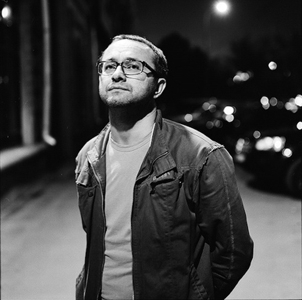Relations and Animations
05/16/2012
As Elena opens, a stationary camera observes the gradual rise of the dawning light as it permeates the clean lines and minimalist decor of a luxury apartment in a contemporary Russian metropolis. Moments later, a woman—the film's title character, played with a rich psychological complexity by Nadezhda Markina—rises dutifully from a modest bed and begins to put herself together. Thick-set with a weary expression, she appears to be the live-in caretaker for a wealthy man in his 70s, maybe a decade older than she. Soon, though, it becomes apparent that their relationship is deeper than that: She is his wife, a former nurse who took the chance to marry a rich man, even if her role in the marriage seems to be almost contractually subsidiary.
Indeed, Elena's unequal footing is made clear when her mate, Vladimir, a presumed industrialist played by Andrei Smirnov, rejects her urgent request for more money to help her son's family—a lumpen crew whose adolescent son faces military service (or worse) if they can't bribe his way into a college. Even though Vladimir spoils his estranged daughter, whom he considers selfish and debauched, he chafes at further subsidizing Elena's clan, headed by her lazy, unemployed son. When a sudden health crisis prompts Vladimir to draw up a will, the twist throws into motion a subdued thriller about the shifting moral calculus in a world where money changes everything.
Elena is the third feature by Russian filmmaker Andrey Zvyagintsev, who was feted with a recent retrospective at the Brooklyn Academy of Music, which touted him as the "next" director due to make an impact on the international film scene. Elena surely offers further confirmation. Grounded in classic elements of film noir but lensed with a stillness that becomes paradoxically nerve-rattling, the story offers a parable for the New Russia steeped in dynamics that were familiar to Dostoyevsky. The insistent strings of original music by Philip Glass and a calm, matter-of-fact observance of behaviors both mundane and sanguine, sustain a tension that is hard to shake—and give seemingly ordinary frames a sense of dark, loaded portent.
Steve Dollar
"THE WALL STREET JOURNAL"
